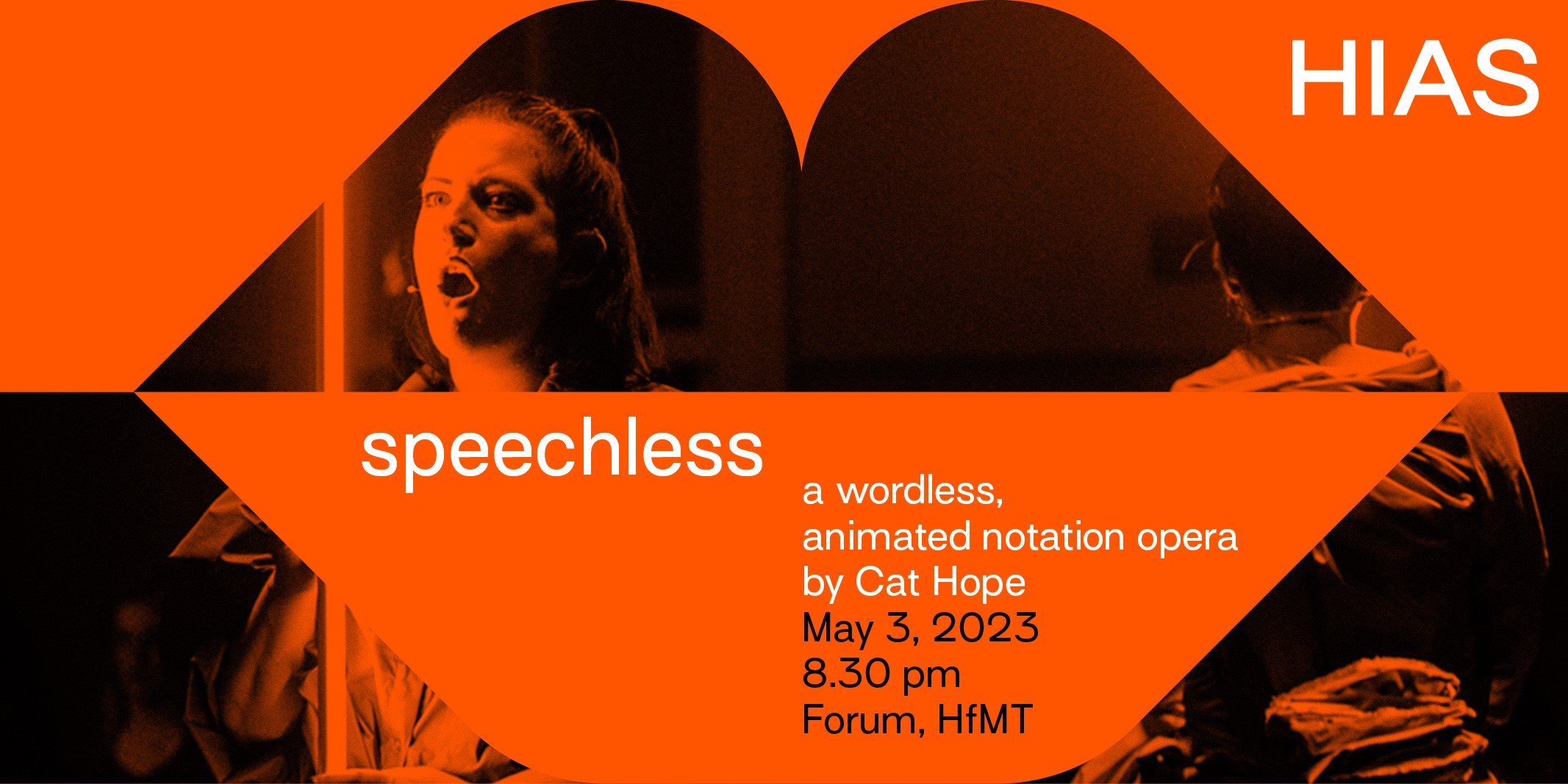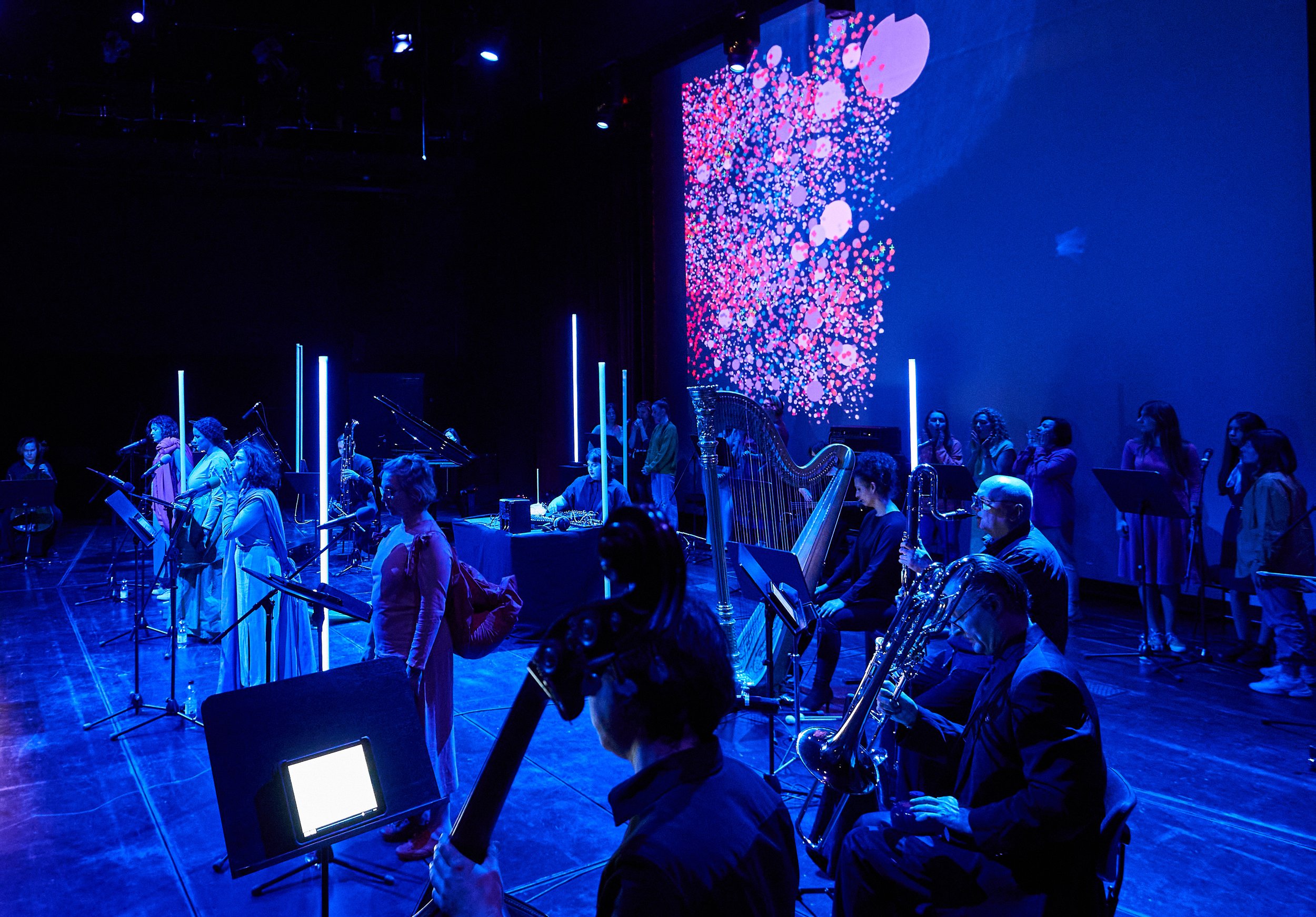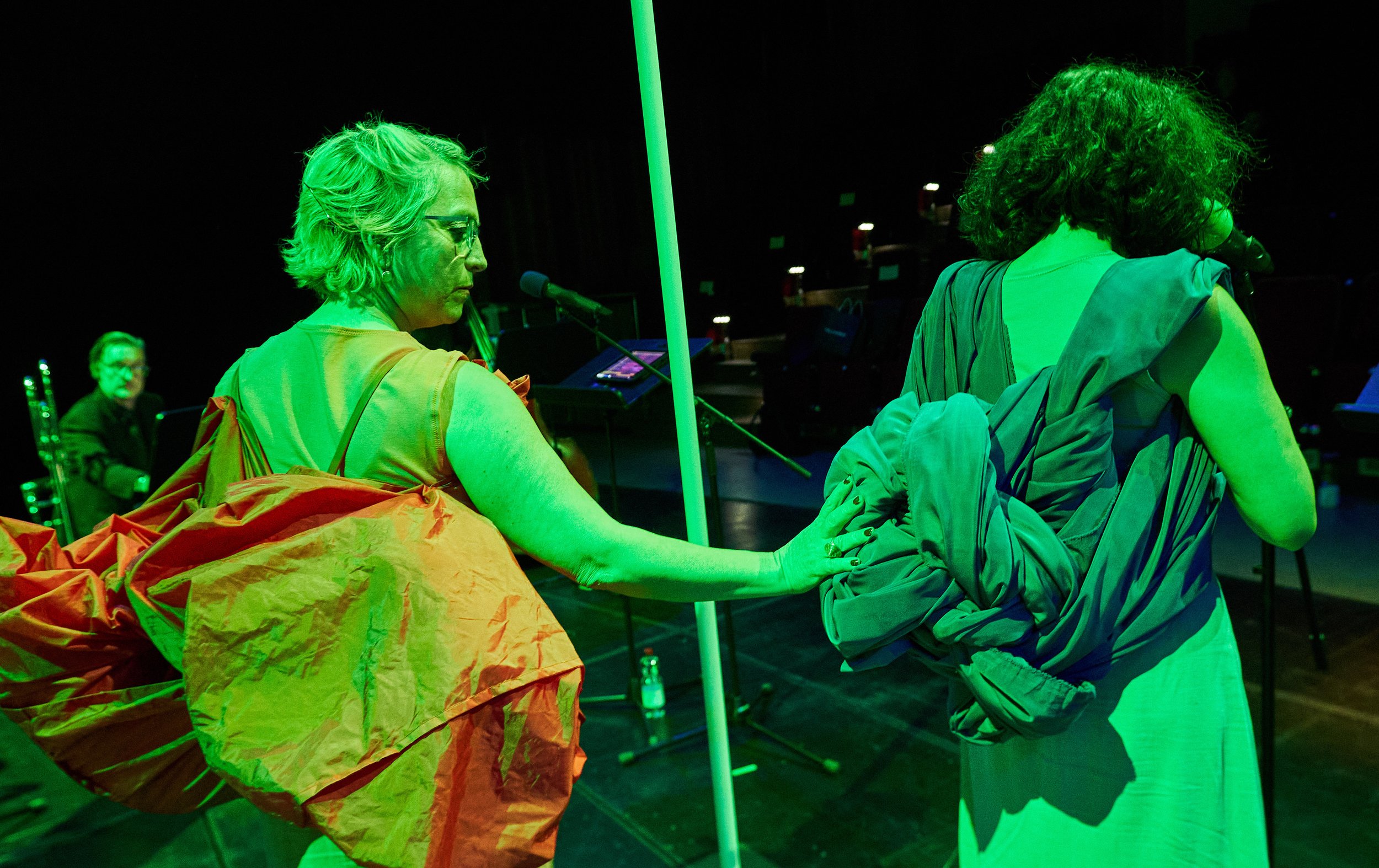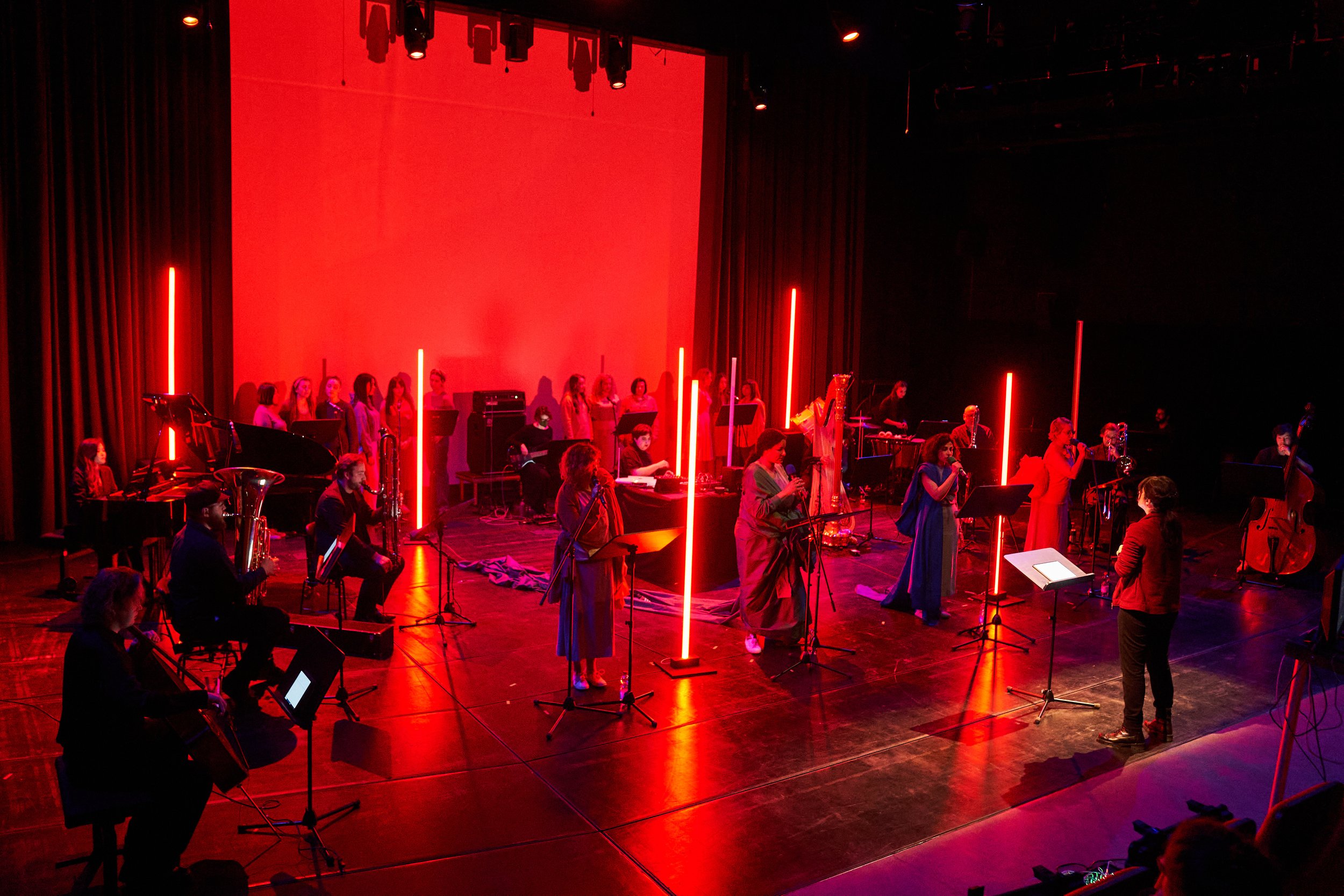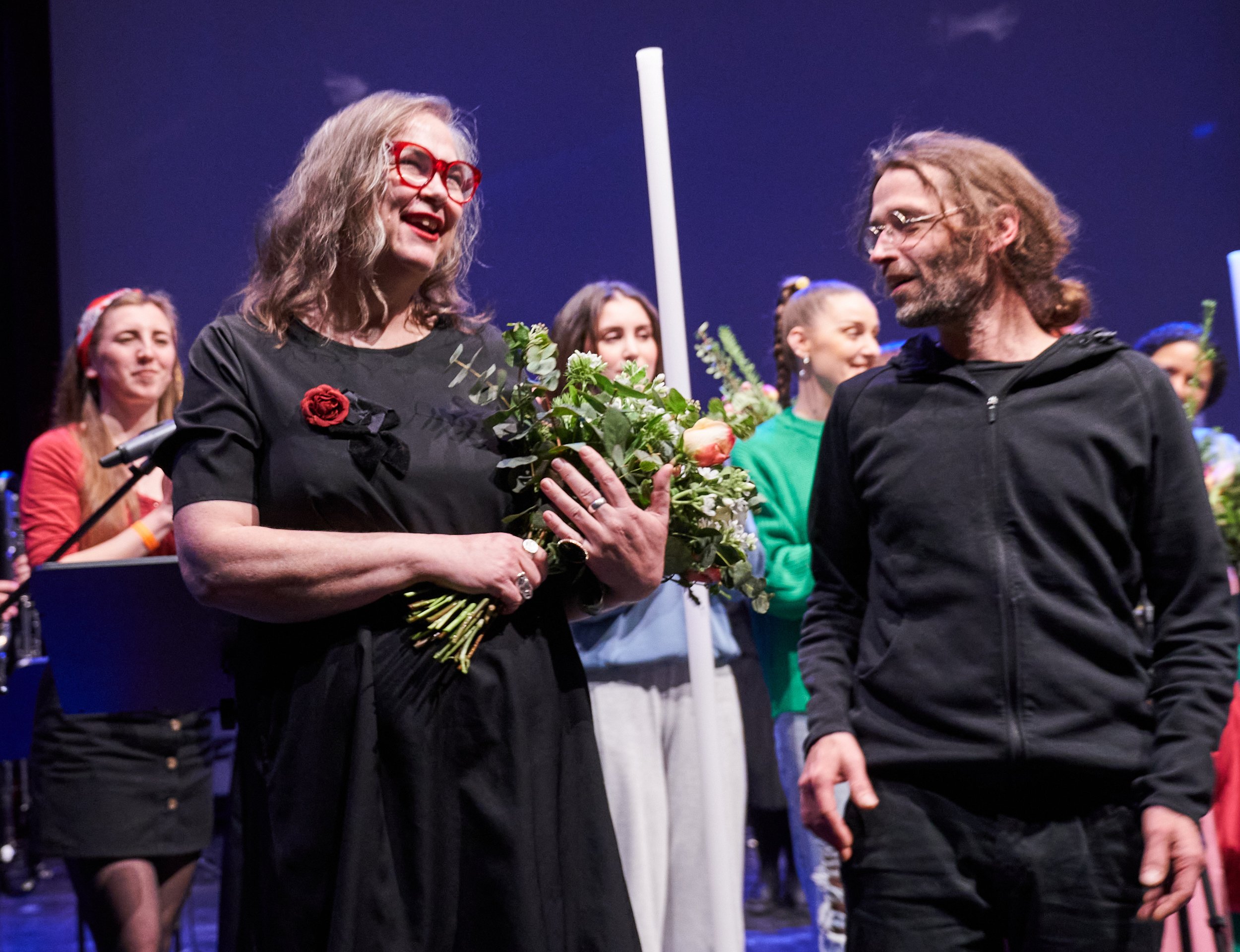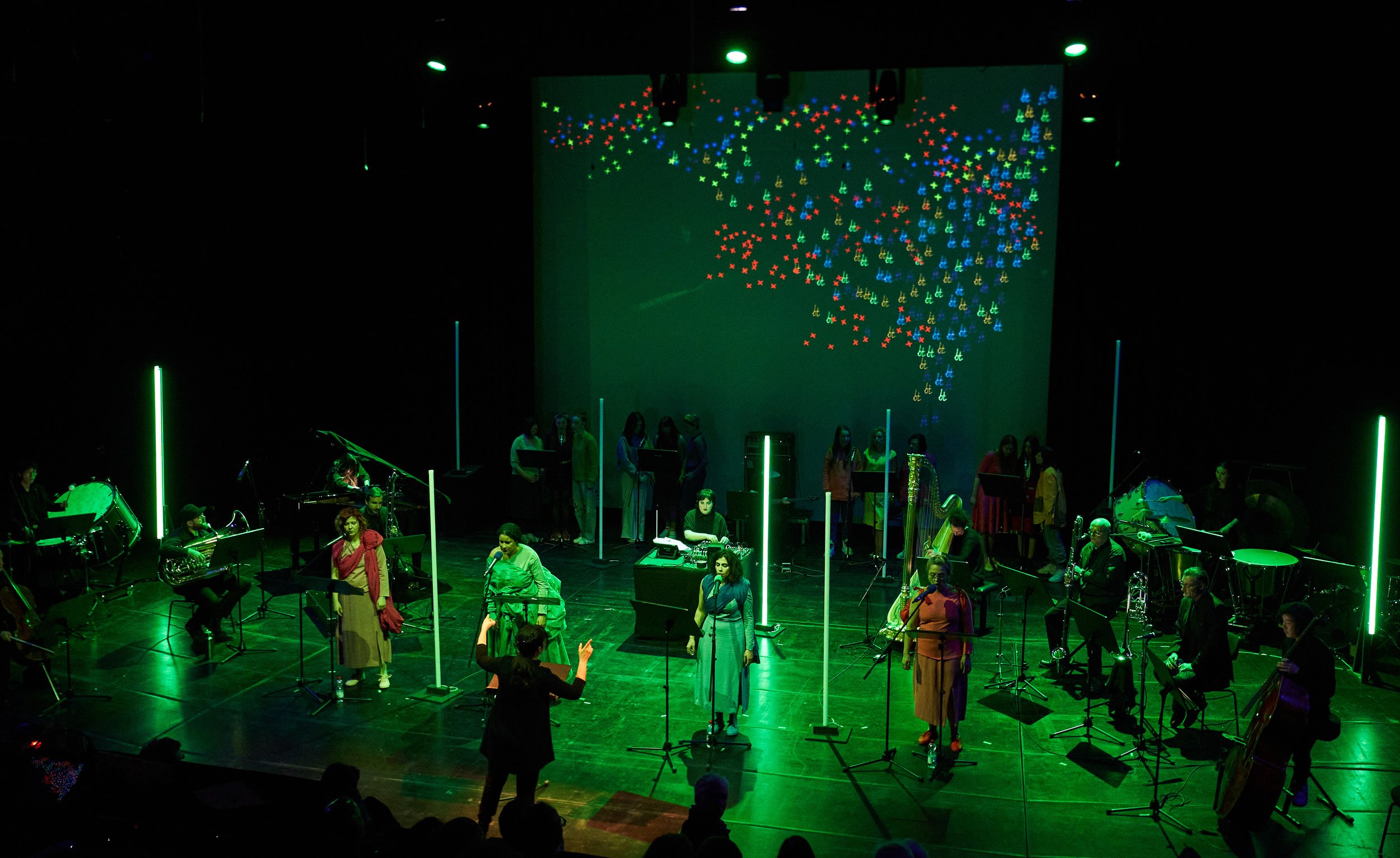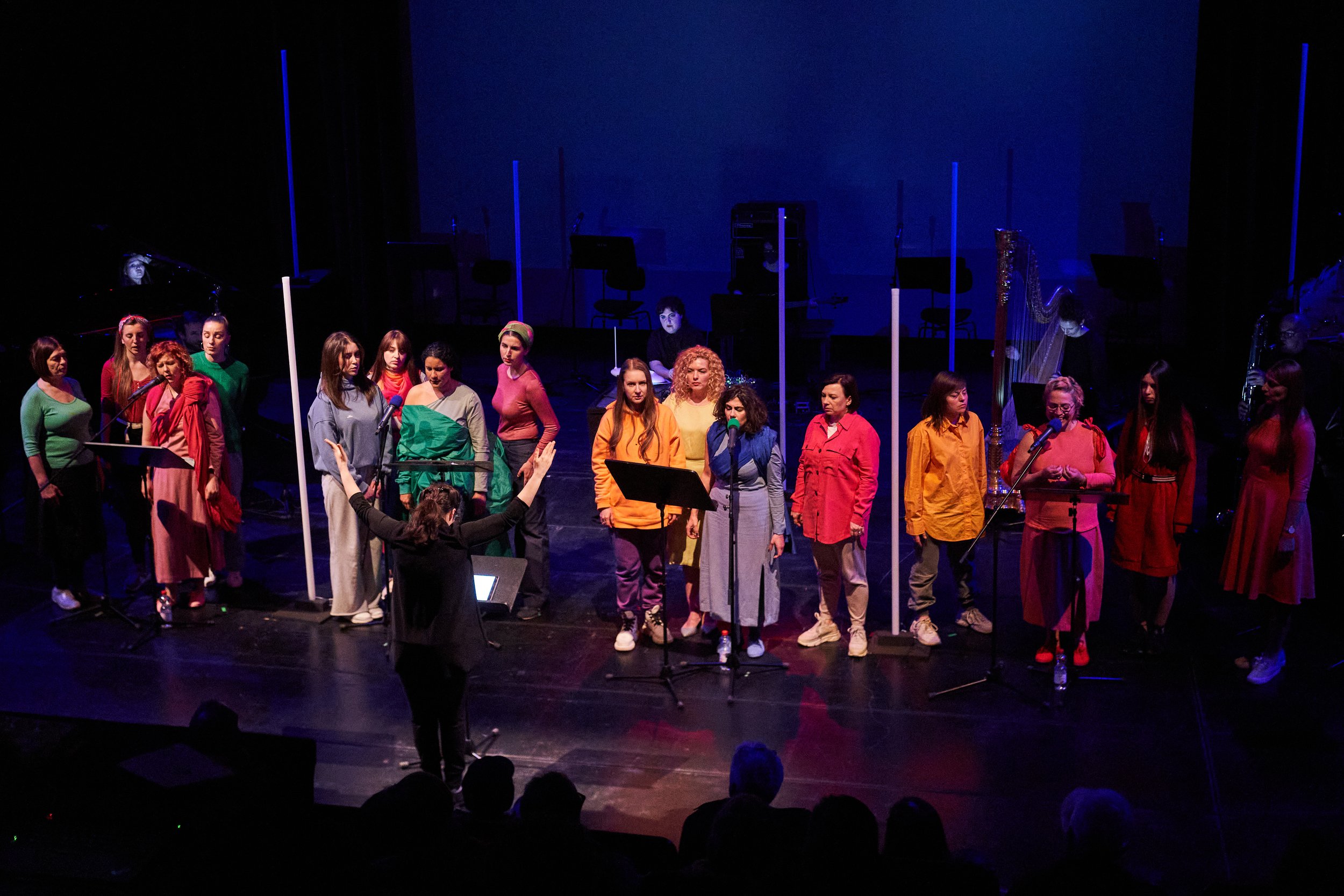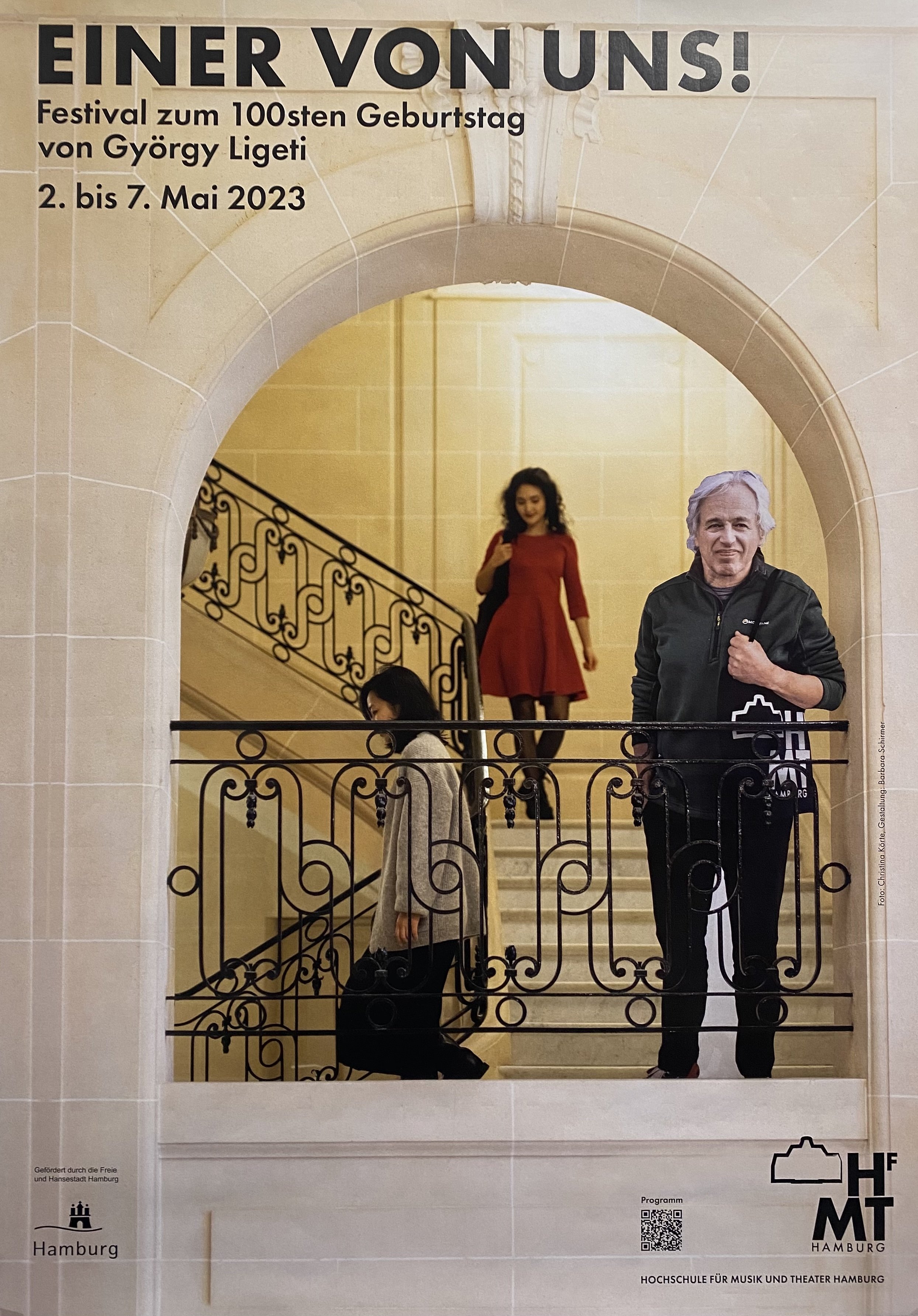Speechless in Hamburg 2023
“an important conduit for making an enormously complex ongoing international crisis resonate on a personal level, for performers and audience alike….a richly complex sonic and visual experience.” Lisa McKinney, Limelight, May 2023.
As part of my research fellowship with the Hamburg Institute for Advanced Study (HIAS), commenced in September 2022, my opera ‘Speechless’ would be premiered in Europe in Hamburg. With the support of the Hamburg Hochschule for Music and Theatre (HfMT), the DigiScore ERC Project, the Ligeti Centre, Ligeti Festival, Monash University and HIAS, a chamber concert version of the opera was staged on 3rd of May, 2023. It featured the Hamburg Bass Ensemble, the Hamburg Choir for the Ukraine (directed by Oksana Koshulko alongside vocal soloists Frauke Aubert, Moxi Beidengel, Hêja Netrik and Marcia Lemke-Kern. The conductor was Yalda Zamani, and the costumes were by Pia Press and Malaika Friedrich Patoine. The technical director was Jacob Sello.
This is the first of a series of blog articles about aspects of this version of the opera.
I gave an interview with Limelight (here) about restaging the opera in a new place, and an introduction in Taz (here) for German audiences. But these don’t provide a true insight into the way this production came about, which i have attempted to provide below.
I spent months attempting to confirm the venue I really wanted for this work in Hamburg, yet a certain point, quite late into my fellowship, i had to accept that it wasn’t going to be possible - there just wasn’t enough run up time. I settled on The Forum, the main theatre space at HfMT. Time was limited in the space, and we managed to pull together around 2 days in there before the show. I was fortunate to have access to a smaller theatre for the technical development and early rehearsals at HfMT for the month leading up to the concert date.
Work on the technical side began in early April 2023. I began by making an adaption of the orchestral score for a chamber ensemble, settling on cello, double bass, 2 contra bass clarinets, 2 percussionists, tuba, bass trombone, bass guitar, live electronics, piano and harp. I pulled together a group of musicians from around Hamburg and called them the ‘Hamburg Bass Ensemble’. The musicians and vocalists would be amplified.
I had been attempting to make connections with various refugee communities in Hamburg for the choir, and it was difficult. Eventually, out of daily discussions about the current situation for Ukranians with Fellow HIAS researcher Oksana Koshulko, she assisted me to make a call out for anyone interested in singing in the ‘Hamburg Choir for Ukraine’ in the opera via social media outlets. Gradually, expressions of interest started to arrive and almost by accident, the choir was all women refugees who had fled Ukraine, from different musical backgrounds such as pop, choir, jazz and karaoke. I was visiting fundraising events featuring these singers and learn alot of this community in Hamburg. Koshulko assisted by organising them for rehearsals, bridging the language gap across German, English and Ukranian. She asked that the singers only spoke in Ukranian during the project, in solidarity for those who find it difficult to hear Russian spoken at this time. I initially had an idea for a choir made up of Russian and Ukranian vocalists, but it was just too soon and raw for such a concept. The choir consisted of 12 Ukranian refugee members and were wonderful in the project. Perhaps the most meaningful comment was that of one of the choir:
“I realised that the composer Cat Hope wrote a masterpiece of music about the war, not experiencing the war personally, but she somehow truly felt it! All the sounds that the singers, choir and orchestra did were so convincing and truthful. That you so much for your work and open, sensitive heart! It was a big pleasure to work with you, Cat” (Facebook, May 2023).
The soloists featured Kurdish artist Hêja Netrik, Argentinean singer Moxi Biedengel, Jamacian/German soprano Marcia Lemke-Kern and German improviser Frauke Aubert. I spent a bit too much time in dark bars looking for a woman heavy metal singer, but was very happy with this combination of approaches as it turned out, with the Kurdish singer being particularly moving in the performance. Unlike the original production, the singers and choir could read the score during the concert - in the premiere they learn’t it by memory.
Working daily with technical director Jacob Sello, we built and developed controllers for colour LED pole lights that would respond to OSC time code from the Decibel ScorePlayer, aligning them perfectly with the music. I designed an application for this thought the 60 minutes of the work, inspired by the original light design by Beij Studio. I notated these in the score alongside the very few theatrical directions that would be featured. This included the choir, who were seated in the audience at the beginning, coming onto the stage, then moving forward to join the soloists in the last act. The soloists too would move from the back of the stage to the front at one point. I also built in standard light cue calls into the score, which i worked on with the lighting team at HfMT. I developed a minimal video part, which was also included in/projected from the score as it played in the Decibel ScorePlayer app on the networked iPads. I made it mostly colour slabs and transitions, to work with the light poles and overhead lights, with some small excerpts of score material that coordinated with the performance.
I worked with the costume designers to build on the two costumes i had bought with me from the premiere, to create a complete set of 4. They worked with the choir to develop a colour concept using their own clothes - following the ‘Faber 12’ concept of colour i had used throughout the score, costume and light design. I met with the conductor Yalda Zamani, and went over what I believed were the key tasks when conducting an animated score in the Decibel ScorePlayer. Fortunately, HfMT has over 40 ipads and a very robust local network hub that they had purchased for a past project. HIAS and the Ligeti Centre took care of the marketing and we decided to make the concert free. We included links to fund raising campaigns from Amnesty International and Fiene Ukraine on the program. The production sold out a week before opening.
The piece was overwhelmingly well received, and you can read a few of the press quotes here, and some personal comments below:
“profound, meaningful and mature.’ Audience member.
“I felt at times that the stage was occupied by ghosts, ghosts that wanted to tell us something. It was very hard at times.. but I stayed because I wanted to listen until the end. It was worth it. ...”. Audience member.
“A transformative experience I will remember forever” Choir member.
“…this is very "democratic" music - meaning (all can) find access to it. The way sounds and visuals play together is very well done”. HIAS audience member.
“As many suffer compassion fatigue with the ongoing barrage of bad news stories, the multi-dimensional nature of opera, combined with concepts of abstraction, can provide a powerful way to think differently about key and complex problems affecting us today. Opera will continue to thrive if it remains relevant to the concepts and approaches of the communities of our time.” Cat Hope, Monash Lens, May 2023. (here for the full article).
Next blog will be on the video for this edition of Speechless.
[photos on this page by Claudi Hoehne/HIAS]

